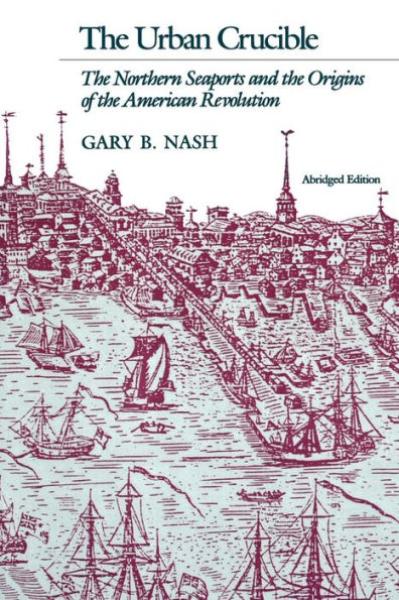Description
The Urban Crucible boldly reinterprets colonial life and the origins of the American Revolution. Through a century-long history of three seaport towns--Boston, New York, and Philadelphia--Gary Nash discovers subtle changes in social and political awareness and describes the coming of the revolution through popular collective action and challenges to rule by custom, law and divine will. A reordering of political power required a new consciousness to challenge the model of social relations inherited from the past and defended by higher classes. While retaining all the main points of analysis and interpretation, the author has reduced the full complement of statistics, sources, and technical data contained in the original edition to serve the needs of general readers and undergraduates.
Gary B. Nash is Professor of History Emeritus, University of California, Los Angeles, and Professor and Director, National Center for History in the Schools.
A work of first importance.--William & Mary Quarterly
Nash's book is one of the finest works on colonial America... His enormously thorough research, discriminating judgment, and lucid exposition will place the problems he discusses in the forefront of historical attention for the next generation of colonial historians.--Times Literary Supplement
This book is a major reinterpretation of urban life in eighteenth-century America... A masterful synthesis of the economic, social, and political history of prerevolutionary America's three largest cities.--Journal of American History
Gary B. Nash is Professor of History Emeritus, University of California, Los Angeles, and Professor and Director, National Center for History in the Schools.
A work of first importance.--William & Mary Quarterly
Nash's book is one of the finest works on colonial America... His enormously thorough research, discriminating judgment, and lucid exposition will place the problems he discusses in the forefront of historical attention for the next generation of colonial historians.--Times Literary Supplement
This book is a major reinterpretation of urban life in eighteenth-century America... A masterful synthesis of the economic, social, and political history of prerevolutionary America's three largest cities.--Journal of American History
Last updated on
Product Details
- Harvard Brand
- Mar 15, 1986 Pub Date:
- 0674930592 ISBN-10:
- 9780674930599 ISBN-13:
- 281 Pages
- 9.1 in * 6.1 in * 0.8 in Dimensions:
- 1 lb Weight:




